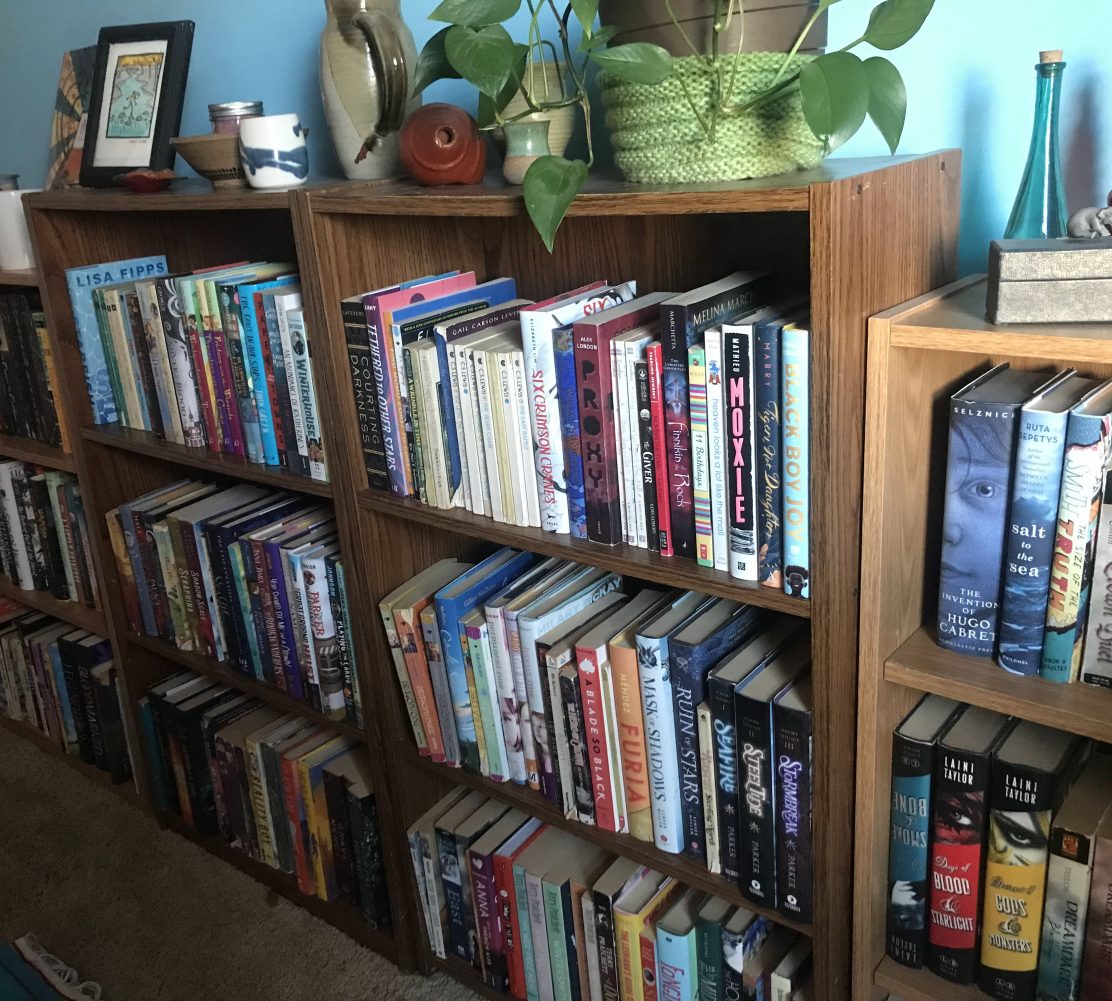by A. S. King
First sentence: “I’m the kid you saw on TV.”
Support your local independent bookstore: buy it there!
Content: A lot — a LOT — of language, and to say Tasha isn’t nice is to grossly misunderstand her. There’s also sex, but none of it is graphic. Or even titillating. It’s in the teen section (grades 9 and up) of the bookstore.
I’ve been doing a lot of thinking about this one since I finished it. Like other books I’ve read recently, I’m not sure this one boils down to a “like” or “dislike”. There was just so much going on that was SO horrific that when I was finished I didn’t want to run around saying to everyone that you HAVE to read this book. That said, I finished it basically in one sitting, because I couldn’t tear myself away.
When Gerald was five, his parents (his mother, mostly) decided that he was a Problem Child and wrote to the Network Nanny show to get them to come help Solve the Problem that was Gerald. And so the Network Nanny came, and he was shown crapping on national TV on the table, in his mother’s shoes, in all sorts of places. And, 12 years later, he still hasn’t lived it down. His nickname is “Crapper”. He’s in Special Ed (because someone who craps on the table MUST be developmentally delayed). He’s in therapy for anger management. And he given up all hope of having a future; his only goal is to stay out of jail.
As the book progresses, though, you come to realize that Gerald isn’t a problem child, that he’s just been labeled that way. And that the situation — from his parents who DON’T DO ANYTHING to his teachers who DON’T DO ANYTHING — has rendered Gerald completely helpless. The book is basically his awakening: the realization that it’s HIS life and if he wants to change it, he CAN. That he doesn’t have to be a victim, doesn’t have to conform to his mother’s expectations of him (which are low, to say the least). And that’s empowering.
Its not an easy read. Gerald’s family is beyond messed up. But King’s writing is not without compassion towards Gerald and his eventual girlfriend, Hannah. There are moments of hope, breaks between the bleakness that make it easier to get through the moments — with his sister Tasha, especially, who is the driving negative force in Gerald’s life — that are hardest to get through. There is hope, in the end, as well. It’s not a happy book, by any means. But it is a powerful one.
And for that reason, it should be read.


I really want to read this. I just have to get around to it!
LikeLike